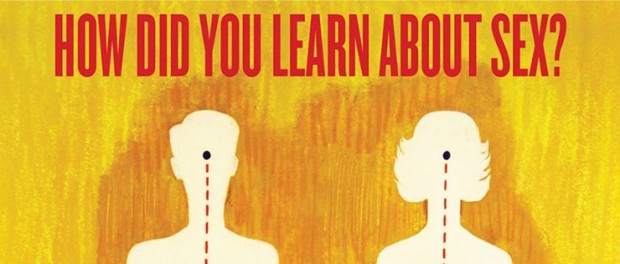Film Review of Sex (ed): Let’s Talk About Sex
Are you a good girl or a BAD one?
The new documentary Sex (ed) explores the evolution of sex education in terms of how the often controversial subject matter has been depicted in a wide variety of educational films throughout the years. Many of the earliest examples of sex ed films featured in the documentary were produced by the U.S. military as part of its sex hygiene program aimed at educating soldiers about the dangers of venereal disease and the “unclean” women who spread it. Sex (ed) is a well researched film that examines the role sex education plays in terms of shaping student’s feelings about issues such as sexuality, gender roles, birth control, and STDs.
In Sex (ed) director Brenda Goodman demonstrates how the educational system, in the U.S. at least, has often used sex ed as a way in which to promote a specific moral or social agenda. In the ’50s, for example, women were taught that their virginity needed to be protected and pre marital sex was strictly taboo. For females sex ed largely involved learning about puberty and discussions focusing on menstruation.
The subject of homosexuality was most often dealt with in films geared to a male audience. One flick, entitled “Boys Beware”, features a male homosexual trolling the streets in search of vulnerable young men. Viewers are told that this ominous character is gay and thus suffering from a sickness of the mind. In this way the film not only deals with stranger danger but also illustrates society’s view of homosexuality as being morally wrong, sick, and criminal. The topic of lesbianism seems to have been rarely discussed in sex ed classes. A girl with a crush on another female was often portrayed as merely going through a stage.
Sex (ed) includes an array of archival material and sex ed films produced in the early 1900s up until present day. The documentary also features personal insights by a number of people discussing how they first learned about sex. Their stories are insightful, funny, intimate, surprising, and at times tinged with sadness (especially in regards to the early experiences of the gay and lesbian interviewees). These personal accounts serve to put a human face on broader issues such as whether sex ed should be taught at school or in the home, the responsibility of the educational system to provide students with practical (and nonjudgmental) information on birth control and STD prevention, as well as the role religious belief and pop culture play in shaping attitudes about sex.
The DVD also features extras including two sex ed films aptly entitled A Respectable Neighborhood (1961) which warns about the perils of contracting a venereal disease (even in a so called “nice” suburban community) and a 1976 flick with the self explanatory title Masturbatory Story, or Coming of Age.
Unfortunately Sex (ed) illustrates how even in our modern society a great many people still see sexual matters through a lens clouded by strict moral codes and rigid Christian values. This is evident during a scene depicting how, in 1994 after publicly voicing her opinion that masturbation should be discussed in sex ed classes, U.S. Surgeon General Joycelyn Elders was fired by “prim and proper” President Clinton. It should be noted that this event occurred prior to Clinton’s infamous tryst with Monica Lewinsky and the scandal that erupted in 1998.
Sex (ed) is an insightful and enlightening documentary which traces the history of sex ed in America. The film also provides a sober lesson about the responsibility of the educational system to provide students with honest, accurate, and unbiased information about sex without framing it to fit a particular moral or social agenda.
Sex (ed) is available now on First Run Features.





